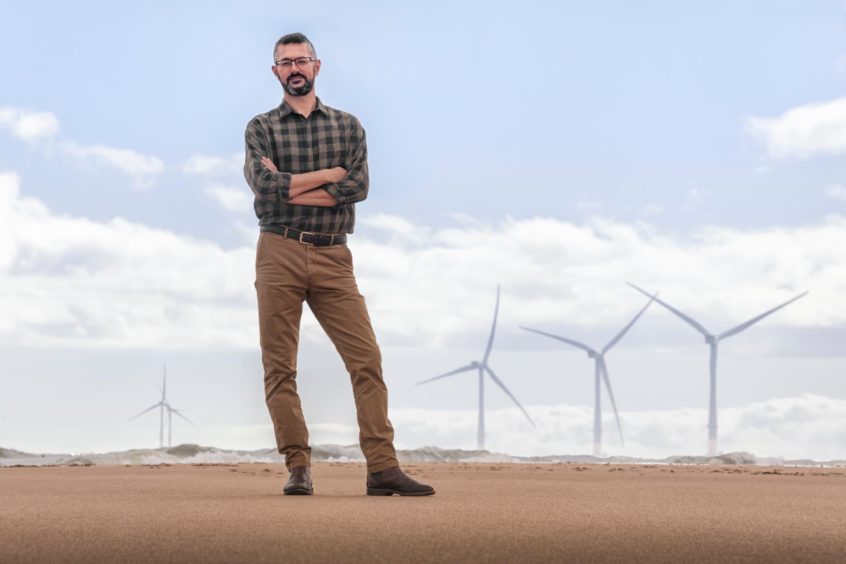
From New South Wales to north-east Scotland, Tavis Potts has come a long way to spearhead the University of Aberdeen’s new Centre for Energy Transition (CET).
The Australian has spent much of his career researching how people and institutions approach sustainability and the fair use of environmental resources, helping communities maximise the benefits arising from emerging green industries.
Arriving in Scotland in 2006, Potts worked with the Scottish Association for Marine Science where he studied how coastal communities could capitalise on the growing use of marine renewables. In 2014 he moved to the University of Aberdeen, and now, as a reader in environmental geography, finds himself as the right person, in the right place, at the right time, as Aberdeen looks to a future beyond oil and gas.
Potts believes that through the CET, whose mission is to bring the power of interdisciplinary research to bear on the climate crisis and the shift to net zero, the university is uniquely placed to play a leading role.
“One of our strengths is the strong research tradition on energy that is now orientating towards driving the transition to net zero,” he explained.
“We have a very strong culture of research across our schools, working on topics such as renewable energy technologies, carbon capture and storage, smart grid integration, green hydrogen production, circular economy and decommissioning and just transitions.”
“The approach of the centre is to pull together all the diverse strands of this research, identify our key strengths and ensure we are connected into societal demands.”
Central to this vision is the concept of the “just transition” – ensuring that communities can maximise the benefits of the move to a low carbon economy fairly and sustainably, particularly in the context of the green recovery from Covid.
This is particularly relevant in Aberdeen, where 50 years of the North Sea oil and gas industry means the area is well placed to capitalise on the opportunities presented by the energy transition.
“It is a scientific, technical, economic and societal challenge,” Potts said. “We need to bring communities with us on this journey, as without a strong civic commitment to energy transition we will simply not succeed in the uptake of new technologies that require significant changes in policy and societal acceptance.”
Operating under eight themes spanning multiple disciplines, the structure of the CET is designed to align to regional (north-east Scotland) and global opportunities, particularly on how regions transition from carbon intensive to low carbon economies. This falls under the broader goal of supporting delivery of the Scottish and UK net-zero targets and the global objective to limit warming to well below 2 degrees Celsius.
With 17 academic staff appointed as champions, themes include renewable generation, carbon capture and natural capital, hydrogen economy, oil and gas in transition, circular economy, integration and digitalisation, demand and markets, and energy system governance.
In addition to research, the CET also promotes education, training and skills in energy transition ranging from full-time masters programmes such as the recent MSc in Energy Transition Systems and Technologies and the MSc in Sustainability Transitions. This adds to the university’s growing portfolio of short online courses and CPD programs covering technical, legal and policy aspects of topics such as geothermal, hydro, solar, marine and wind energy and is responding to skills demands and training opportunities for industry and government.
“What is particularly exciting about CET is the strong feeling of interdisciplinary collaboration across the themes and schools, how energy transition cuts across a wide array of research disciplines and how social transformation and governance is a central part of our approach,” Potts said.
“The social sciences and humanities are there alongside the physical, natural, earth and engineering sciences – it is this collective effort between academia, industry, government and society that is needed to address climate challenge at scale and within the next decade.
“Another strength of the university is our long-term connection to the energy industry in Aberdeen and beyond. We have global connections to our graduates and alumni all working in industries and governments that have a common challenge about how to meet our collective climate goals, decarbonise our economies and develop green growth strategies. It is an enormous resource that we have.”
Recommended for you
